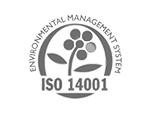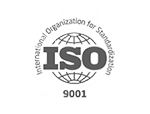Ever watched a tanker truck full of powdery materials navigate a highway and wondered what prevents disaster if something goes wrong? The transport of bulk powders and granules isn’t just another shipping job—it’s a carefully orchestrated process where even small mistakes can lead to contamination, product loss, or safety hazards. Whether you’re responsible for shipping food ingredients, construction materials, or industrial chemicals, understanding the specialized safety measures involved could save you from costly errors and ensure your products arrive exactly as intended. From custom-designed vehicles to rigorously trained drivers, the world of bulk material transport offers fascinating insights into how specialized logistics solve complex challenges behind the scenes of our everyday products.
Understanding transport safety in bulk material delivery
Transporting powdery and granular materials presents unique challenges that require specialized safety measures beyond standard freight handling. These materials can be sensitive to moisture, temperature changes, and contamination, making proper containment essential throughout the journey.
Safety in bulk transport begins with understanding the specific properties of each material. Whether handling food-grade powders that require absolute purity or industrial granules that might be abrasive or reactive, different substances demand tailored safety protocols. Industry standards like ISO certifications and ADR regulations (for dangerous goods) provide the framework that professional transport companies follow.
Risk assessment is another crucial component, identifying potential hazards at each transport stage. This proactive approach helps prevent issues before they occur, ensuring both product integrity and environmental protection during transit.
What specialized equipment is needed for safe powder transport?
Safe bulk material transport relies on purpose-built vehicles and containment systems designed specifically for powders and granules. Silo tankers with pressurized pneumatic systems allow for closed transfers that eliminate exposure to external elements.
These specialized vehicles feature:
- Airtight compartments that prevent moisture ingress
- Pressure regulation systems that maintain optimal conditions
- Food-grade stainless steel tanks for sensitive materials
- Specialized discharge equipment for controlled unloading
The right equipment selection depends on the specific material properties. For example, hygroscopic substances require exceptional moisture barriers, while abrasive materials need reinforced containment systems.
How do transport companies maintain quality control during delivery?
Maintaining product integrity throughout transport requires rigorous quality control procedures at every stage. Professional transport companies implement comprehensive verification protocols from initial loading through final delivery.
Key quality control measures include:
- Pre-loading inspection of transport containers for cleanliness and integrity
- Proper sealing and documentation to prevent contamination
- Temperature and humidity monitoring for sensitive materials
- Sampling procedures when required by regulatory standards
- Complete documentation trail for traceability
Digital monitoring systems now allow real-time quality parameter tracking, providing alerts if conditions deviate from acceptable ranges. For international shipments, additional quality measures ensure compliance with cross-border regulations. If you have specific quality requirements, experienced transport specialists can advise on appropriate protocols.
What training do professional drivers need for safe material transport?
Drivers handling bulk material transport require specialized training that goes far beyond standard commercial driving qualifications. Professional certification programs ensure drivers understand both the technical aspects of equipment operation and the specific handling requirements of different materials.
Essential driver training components include:
- Proper operation of pneumatic loading and unloading systems
- Material-specific handling procedures and safety precautions
- Emergency response protocols for spills or system failures
- Documentation requirements and regulatory compliance
Continuous education is equally important, as regulations and best practices evolve. Professional transport companies invest in regular refresher courses and hands-on training to maintain high safety standards. This commitment to ongoing training ensures that drivers remain up-to-date with the latest safety protocols and handling techniques.
How can technology improve the safety of bulk material transport?
Modern technology has revolutionized bulk material transport safety through real-time monitoring and predictive systems that anticipate potential issues before they become problems.
Key technological safety enhancements include:
- GPS tracking systems providing real-time location monitoring
- Telematics solutions that track vehicle performance metrics
- Digital sensors monitoring pressure, temperature and humidity
- Predictive maintenance software identifying potential equipment failures
- Route optimization tools that avoid hazardous conditions
These technologies work together to create a comprehensive safety ecosystem. For instance, when adverse weather conditions develop, route optimization software can suggest alternatives while monitoring systems ensure product integrity throughout the journey. These advanced solutions represent the cutting edge of transport safety management.
Key takeaways for choosing a reliable transport partner
Selecting the right transport company for bulk materials requires careful evaluation of several critical factors that directly impact delivery safety and reliability.
When choosing a transport partner, prioritize:
- Specialized equipment designed specifically for your material type
- Comprehensive driver training and certification programs
- Documented quality control and safety procedures
- Modern technology for monitoring and optimization
- Experience with similar materials and delivery requirements
- Regulatory compliance and proper certifications
The best transport providers have spent decades developing the expertise, equipment, and systems needed for safe bulk material transport. Their approach combines human expertise with technical solutions to ensure every delivery meets the highest safety standards. This commitment to excellence makes all the difference when transporting sensitive powdery and granular materials.






